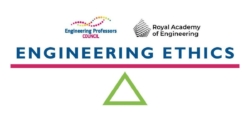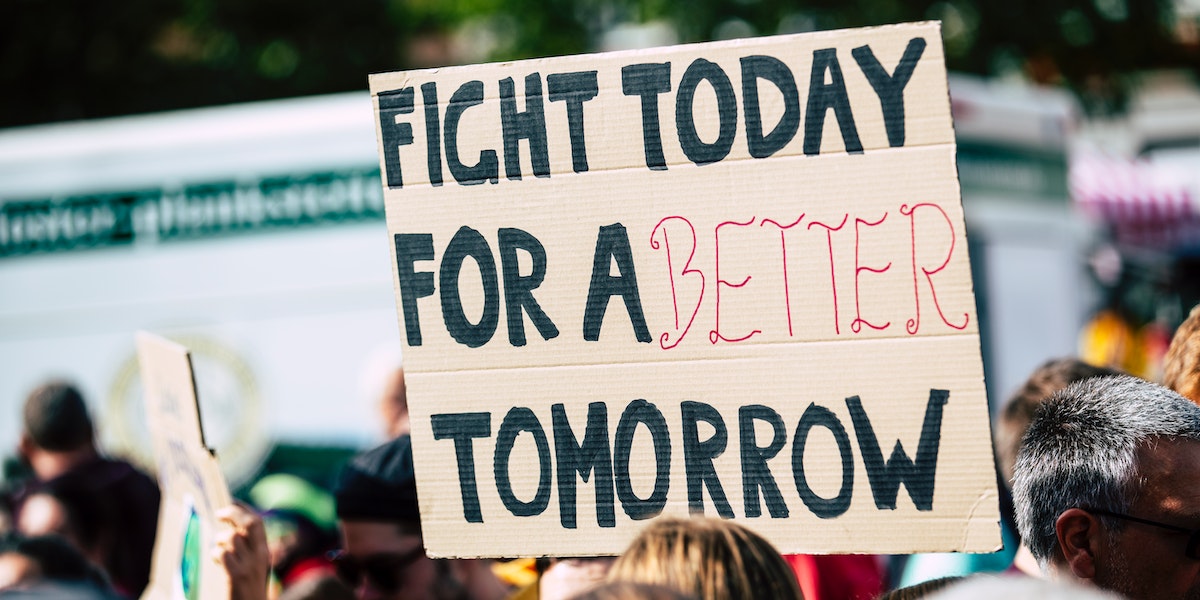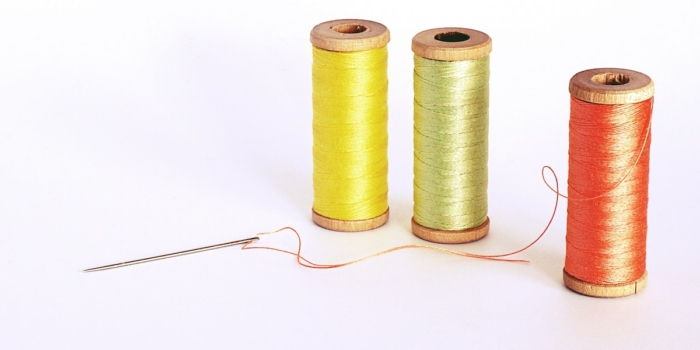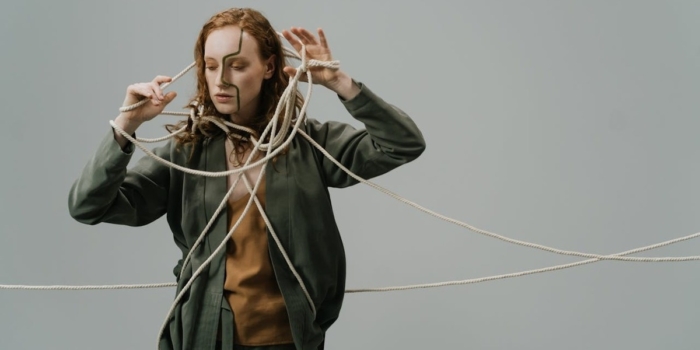 Author: Wendy Attwell (Engineering Professors’ Council).
Author: Wendy Attwell (Engineering Professors’ Council).
Topic: Balancing personal values and professional conduct in the climate emergency.
Engineering disciplines: Civil engineering; Energy and Environmental engineering; Energy.
Ethical issues: Respect for the environment; Justice; Accountability; Social responsibility; Risk; Sustainability; Health; Public good; Respect for the law; Future generations; Societal impact.
Professional situations: Public health and safety; Communication; Law / Policy; Integrity; Legal implications; Personal/professional reputation.
Educational level: Intermediate.
Educational aim: Practicing Ethical Reasoning: the application of critical analysis to specific events in order to evaluate and respond to problems in a fair and responsible way.
Learning and teaching notes:
This case study involves an engineer who has to weigh personal values against professional codes of conduct when acting in the wake of the climate crisis. This case study allows students to explore motivations and justifications for courses of action that could be considered morally right but legally wrong.
This case study addresses two of the themes from the Accreditation of Higher Education Programmes fourth edition (AHEP4): The Engineer and Society (acknowledging that engineering activity can have a significant societal impact) and Engineering Practice (the practical application of engineering concepts, tools and professional skills). To map this case study to AHEP outcomes specific to a programme under these themes, access AHEP 4 here and navigate to pages 30-31 and 35-37.
The dilemma in this case is presented in three parts. If desired, a teacher can use Part one in isolation, but Parts two and three develop and complicate the concepts presented in Part one to provide for additional learning. The case study allows teachers the option to stop at multiple points for questions and/or activities, as desired.
Learners have the opportunity to:
- identify underlying values of professional situations;
- practise developing, defending, and delivering arguments;
- debate the potential options of an ethical decision;
- make and justify an ethical decision;
- identify and define positions on an ethical issue;
- apply codes of ethics to an engineering ethics dilemma;
- consider different perspectives on an ethical issue and what values inform those perspectives;
- practise professional communication related to ethical dilemmas;
- identify professional responsibilities of engineers in an ethical dilemma;
- determine and defend a course of action in response to an ethical dilemma;
- consider how they would act in an ethical situation.
Teachers have the opportunity to:
- evaluate critical thinking, argumentation, and communication skills;
- highlight professional codes of ethics and their relevance to an engineering situation;
- provide an opportunity for reflection;
- introduce aspects of professional responsibility.
Learning and teaching resources:
Professional organisations:
- RAEng/Engineering Council Statement of Ethical Principles
- ICE Code of Professional Conduct
- ICE – six ways for civil engineers to act on climate change
- ICE press release on QEII bridge protest
Educational institutions:
- Values worksheet
- Do climate protests shift public support for climate change action?
- Climate Justice
Education and campaign groups:
News articles:
- My suffragette grandmothers are now seen as heroes. Today’s climate protesters will be too
- What is the law on the right to protest in the UK?
- Climate change: Is the UK on track to meet its targets?
- Civil engineer protesting on Dartford Crossing driven by professional duty to protect environment
- How radical should you be when you’re trying to save the planet?
- GP could be struck off after Just Stop Oil protest
- ‘It’s sometimes right to disobey laws’: Doctor suspended for Insulate Britain protests speaks out
- Stop punishing doctors who take part in climate protests, regulator told
- First Working GP Sent to Prison for Peaceful Climate Protest
- GP jailed for role in Just Stop Oil protest
Summary:
Kelechi is a civil engineer in a stable job, working on the infrastructure team of a County Council that focuses on regeneration and public realm improvements. Kelechi grew up in an environment where climate change and its real impacts on people was discussed frequently. She was raised with the belief that she should live as ethically as possible, and encourage others to consider their impact on the world. These beliefs were instrumental in leading Kelechi into a career as a civil engineer, in the hope that she could use her skills and training to create a better world. In one of her engineering modules at university, Kelechi met Amanda, who encouraged her to join a student group pushing for sustainability within education and the workplace. Kelechi has had some success with this within her own job, as her employer has been willing to participate in ongoing discussions on carbon and resilience, and is open to implementing creative solutions.
But Kelechi is becoming frustrated at the lack of larger scale change in the wake of the climate emergency. Over the years she has signed petitions and written to her representatives, then watched in dismay as each campaign failed to deliver real world carbon reduction, and as the government continued to issue new licenses for fossil fuel projects. Even her own employers have failed to engage with climate advocates pushing for further changes in local policy, changes that Kelechi believes are both achievable and necessary. Kelechi wonders what else she can do to set the UK – if not the world – on a path to net zero.
Dilemma – Part one:
Scrolling through a news website, Kelechi is surprised to see a photo of her friend and ex-colleague Amanda, in a report about climate protesters being arrested. Kelechi messages Amanda to check that she’s ok, and they get into a conversation about the protests. Amanda is part of a climate protest group of STEM professionals that engages in non-violent civil disobedience. The group believes that by staging direct action protests they can raise awareness of the climate emergency and ultimately effect systemic change.
Amanda tries to convince Kelechi to join the group and protest with them. Amanda references the second principle of the Statement of Ethical Principles published by the Engineering Council and the Royal Academy of Engineering: “Respect for life, law, the environment and public good.” Amanda believes that it is ok to ignore the tenet about respect for the law in an effort to safeguard the other three, and says that there have been plenty of unjust laws throughout history that have needed to be protested in order for them to be changed for the public good. She also references another part of the Statement: that engineers should ”maximise the public good and minimise both actual and potential adverse effects for their own and succeeding generations”. Amanda believes that by protesting she is actually fulfilling her duty to uphold these principles.
Kelechi isn’t sure. She has never knowingly broken the law before, and is worried about being arrested. Kelechi consults her friend Max, who is a director of a professional engineering institution, of which Kelechi is a member. Max, whilst she has some sympathies for the aims of the group, immediately warns Kelechi away from the protests. “Forget about being arrested; you could lose your job and end your career.”
Optional STOP for questions and activities:
1. Discussion: What personal values will Kelechi have to weigh in order to decide whether or not to take part in a civil disobedience protest?
2. Discussion: Consider the tenet of the Statement of Ethical Principles “Respect for life, law, the environment and public good.” To what extent (if at all) do the four tenets of this ethical principle come into conflict with one another in this situation? Can you think of other professional situations in which they might conflict?
3. Discussion: Is breaking the law always unethical? Are there circumstances when breaking the law might be the ethical thing to do in the context of engineering practice? What might these circumstances be?
4. Discussion: To what extent (if at all) does the content of the Statement of Ethical Principles make a case for or against being part of a protest where the law is broken?
5. Discussion: Following on from the previous question – does it make a difference what is being protested, if a law is broken? For example, is protesting fossil fuels that lead to climate change different from protesting unsafe but legal building practices, such as cladding that causes a fire risk? Why?
6. Activity: Research other professional codes of engineering: do these have clear guidelines for this situation? Assemble a bibliography of other professional codes or standards that might be relevant to this scenario.
7. Discussion: What are the potential personal and professional risks or benefits for Kelechi if she takes part in a protest where the law is broken?
8. Discussion: From a professional viewpoint, should Kelechi take part in the protest? What about from a personal viewpoint?
Dilemma – Part two:
After much deliberation, Kelechi decides to join the STEM protest group. Her first protest is part of a direct action to blockade a busy London bridge. To her own surprise, she finds herself volunteering to be one of two protesters who will climb the cables of the bridge. She is reassured by the risk assessment undertaken by the group before selecting her. She has climbing experience (although only from her local leisure centre), and safety equipment is provided.
On the day of the protest, Kelechi scales the bridge. The police are called and the press arrive. Kelechi stays suspended from the bridge for 36 hours, during which time all traffic waiting to cross the bridge is halted or diverted. Eventually, Kelechi is convinced that she should climb down, and the police arrest all of the protesters.
Later on, Kelechi is contacted by members of the press, asking for a statement about her reason for taking part in the protest. Kelechi has seen that press coverage of the protest is so far overwhelmingly negative, and poll results suggest that the majority of the public see the protesters’ actions as selfish, inconvenient, and potentially dangerous, although some have sympathy for their cause. “What if someone died because an ambulance couldn’t use the bridge?” asks someone via social media. “What about the five million deaths a year already caused by climate change?” asks another, citing a recent news article.
Kelechi would like to take the opportunity to make her voice heard – after all, that’s why she joined the protest group – but she isn’t sure whether she should mention her profession. Would it add credibility to her views? Or would she be lambasted because of it?
Optional STOP for questions and activities:
1. Discussion: What professional principles or codes is Kelechi breaking or upholding by scaling the bridge?
2. Activity: Compare the professional and ethical codes for civil engineers in the UK and elsewhere. How might they differ in their guidance for an engineer in this situation?
3. Activity: Conduct a risk assessment for a) the protesters who have chosen to be part of this scenario, and b) members of the public who are incidentally part of this scenario.
4. Discussion: Who would be responsible if, as a direct or indirect result of the protesters blocking the bridge, a) a member of the public died, or b) a protester died? Who is responsible for the excess deaths caused directly or indirectly by climate change?
5. Discussion: How can Kelechi best convey to the press and public the quantitative difference between the short-term disruption caused by protests and the long-term disruption caused by climate change?
6. Discussion: Should Kelechi give a statement to the press? If so, should she discuss her profession? What would you do in her situation?
7. Activity: Write a statement for Kelechi to release to the press.
8. Discussion: Suggest alternative ways of protesting that would have as much impact in the news but potentially cause less disruption to the public.
Dilemma – Part three:
Kelechi decides to speak to the press. She talks about the STEM protest group, and she specifically cites the Statement of Ethical Principles as her reason for taking part in the protest: “As a professional civil engineer, I have committed to acting within our code of ethics, which requires that I have respect for life, the environment and public good. I will not just watch lives be destroyed if I can make a difference with my actions.”
Whilst her statement gets lots of press coverage, Kelechi is called out by the media and the public because of her profession. The professional engineering institution of which Kelechi is a member receives several complaints about her actions, some from members of the public and some from other members of the institution. “She’s bringing the civil engineering profession into disrepute,” says one complaint. “She’s endangering the public,” says another.
It’s clear that the institution must issue a press release on the situation, and it falls to Kelechi’s friend Max, as a director of the institution, to decide what kind of statement to put out, and to recommend whether Kelechi’s membership of the institution could – or should – be revoked. Max looks closely at the institution’s Code of Professional Conduct. One part of the Code says that “Members should do nothing that in any way could diminish the high standing of the profession. This includes any aspect of a member’s personal conduct which could have a negative impact upon the profession.” Another part of the Code says: “All members shall have full regard for the public interest, particularly in relation to matters of health and safety, and in relation to the well-being of future generations.”
As well as the institution’s Code of Conduct, Max considers the historic impact of civil resistance in achieving change, and how those engaging in such protests – such as the suffragettes in the early 1900s – could be viewed negatively at the time, whilst later being lauded for their efforts. Max wonders at what point the tide of public opinion begins to turn, and what causes this change. She knows that she has to consider the potential impacts of the statement that she puts out in the press release; how it might affect not just her friend, but the institution’s members, other potential protesters, and also her own career.
Optional STOP for questions and activities:
1. Discussion: Historically, has civil resistance been instrumental or incidental in achieving systemic change? Research to find out if and when engineers have been involved in civil resistance in the past.
2. Discussion: Could Kelechi’s actions, and the results of her actions, be interpreted as having “a negative impact on the profession”?
3. Discussion: Looking at Kelechi’s actions, and the institution’s code of conduct, should Max recommend that Kelechi’s membership be revoked?
4. Discussion: Which parts of the quoted code of conduct could Max emphasise or omit in her press release, and how might this affect the tone of her statement and how it could be interpreted?
5. Activity: Debate which position Max should take in her press release: condemning the actions of the protesters as being against the institution’s code of conduct; condoning the actions as being within the code of conduct; remaining as neutral as possible in her statement.
6. Discussion: What are the wider impacts of Max’s decision to either remain neutral, or to stand with or against Kelechi in her actions?
7. Activity: Write a press release for the institution, taking one of the above positions.
8. Discussion: Which other authorities or professional bodies might be impacted by Max’s decision?
9. Discussion: What are the potential impacts of Max’s press release on the following stakeholders, and what decisions or actions might they take because of it? Kelechi; Kelechi’s employer; members of the STEM protest group; the institution; institution members; government policymakers; the media; the public; the police; fossil fuel businesses; Max’s employers; Max herself.
This work is licensed under a Creative Commons Attribution-ShareAlike 4.0 International License.
Any views, thoughts, and opinions expressed herein are solely that of the author(s) and do not necessarily reflect the views, opinions, policies, or position of the Engineering Professors’ Council or the Toolkit sponsors and supporters.




